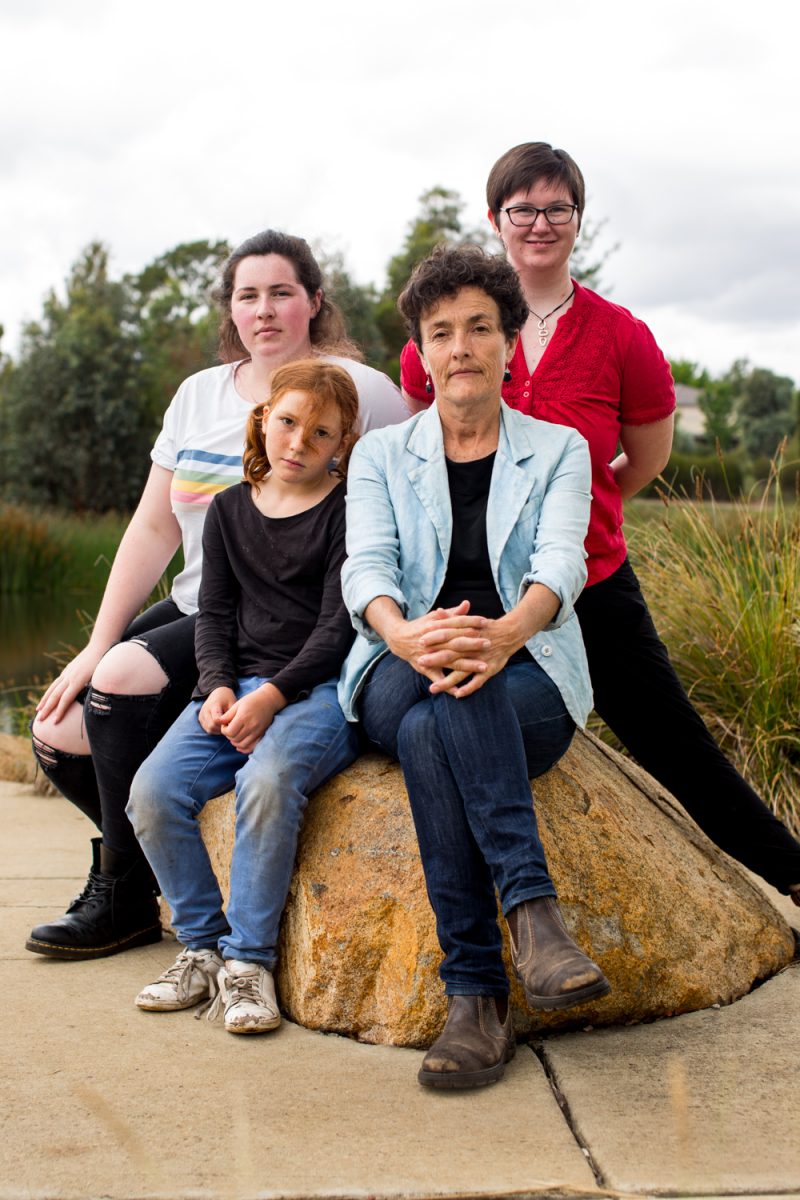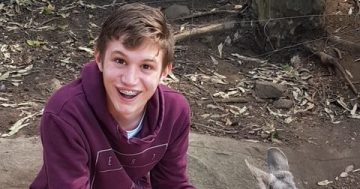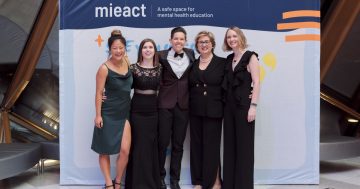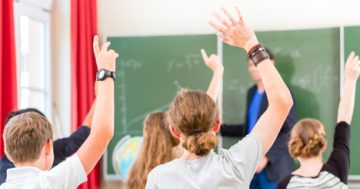
Students Georgia, Sophia and Clara with SEE-Change Executive Officer, Edwina Robinson. Photo: Tulitha King.
There has recently been discussion regarding what students should be doing in class (and outside of it). This included the recent exclamation of the Prime Minister that there should be less activism in school and more learning.
This intervention raised a question about what should be happening inside schools to support young people to engage with their community. It highlights the tensions sometimes seen in the Australian Curriculum that is doing many things. This includes teaching the fundamentals such as reading, writing, maths and science, as well as equipping our young people for a rapidly changing world.
As part of this, teaching civics, education, and engagement with the political system have been recognised as a key part of students’ learning. Educational experiences where young people can practice engaging with evidence regarding key issues and identifying workable community solutions are valuable. We know that these can be important in supporting young people to become active, engaged and skilled citizens.
Surprisingly, outside the mandatory visit to Canberra by all Australian students, there aren’t many programs that provide young people with direct experience of how to engage in government decision making. One innovative program that has done this is the Parliament of Youth on Sustainability program, facilitated by the local environmental organisation, SEE-Change.
The Parliament has been operating in Canberra since 2013. It is a way to give students the opportunity to problem solve, work in teams and come up with ideas on how to make Canberra more sustainable. It creates an opportunity for Ministers of the Legislative Assembly to engage directly with young people. This year it saw over 200 students from 20 schools over Canberra proposing ideas such as e-waste exchange programs and ways to encourage people to make healthy food choices.
A key thing the program has done is demonstrate to young people that they can contribute to solving big issues. One of the participants of the program, Lamis Kazak shared her perspectives on what the program taught her. She noted
“…the Parliament gave me a great sense of optimism as I saw so many young people tackling environmental problems with such enthusiasm! There was a real sense of genuine hope, and a zest for change at each of the Parliaments I attended. Rather than feel daunted by the size of the environmental problems we are facing today, the participants seemed to relish the challenge. The participants also responded incredibly well to having a platform for voicing their own ideas, and being taken seriously. It really opened my eyes to the need for younger generations to be included more in discussions around environmental problems”.
The Program has also identified our current and future environmental leaders. Clara McArthur was part of the program for a number of years. Recently, she continued her leadership journey as one of the masters of Ceremonies at the Canberra Student Climate Change Strike. Lamis has also shared how important involvement in the program was to her in supporting her leadership journey. She noted that it was a humbling experience. She said it
“..helped teach me how to be a guiding leader, and help empower those within the Parliament. Rather than taking charge, my responsibility was to ensure everyone within the room felt comfortable to voice their ideas, and that the conversation was kept factually accurate.”
I believe this type of leadership, that encourages leadership and helps empower others, is vitally important. It allows everyone to contribute rather than limiting the decision-making to one person alone”.
Given all of this, it’s disappointing to hear that the Parliament program may not be going ahead in 2019. At this stage, the ACT Education Directorate has been unable to confirm it will continue to fund the program. This is despite the program being a great way to support key aims of the Future of Education Strategy. These include placing students at the centre of their learning and giving them a voice. While other parts of ACT Government have indicated support, it will be difficult to continue without the Education’s Directorate’s support.
I think we need to be supporting programs that directly engage young people in identifying solutions to community issues. Where have you seen inspiring leadership displayed by young people recently?





















